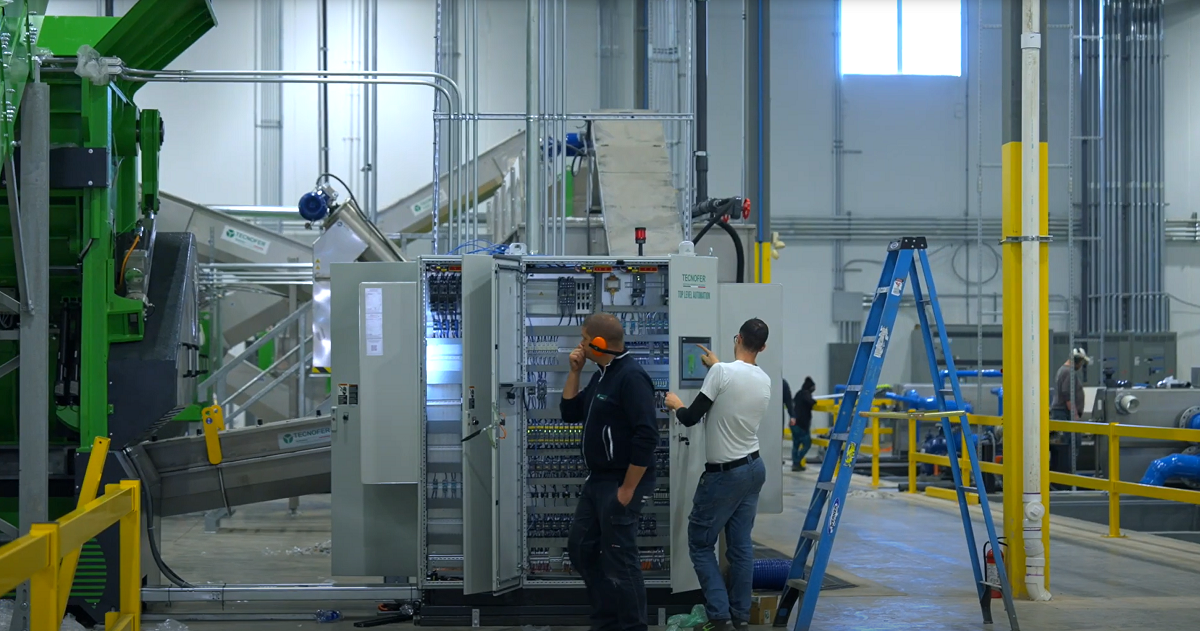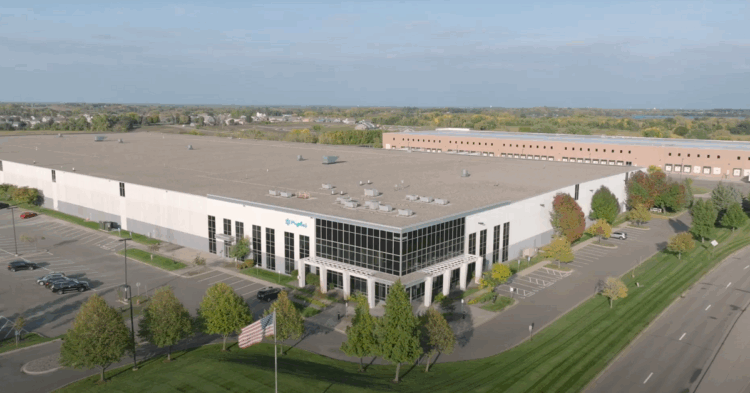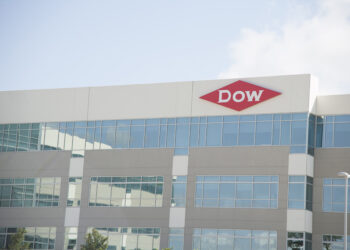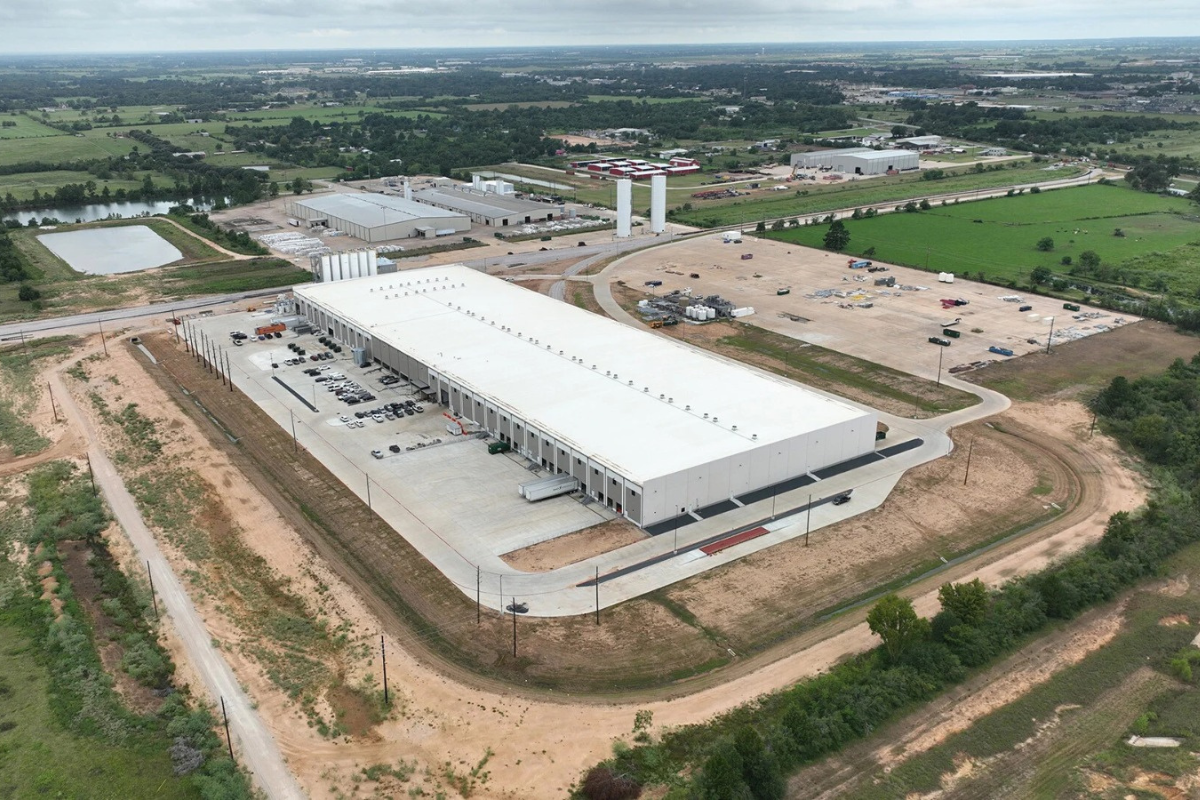Minnesota-based film recycling company Myplas USA closed its doors just weeks after opening, and was quickly served with an eviction lawsuit. The legal action has been settled out of court, but the facility’s future remains uncertain.
The Myplas USA project launched two years ago, as prominent brand owners and groups supporting materials recovery came together to plan a film recycling operation in the Midwest U.S. The company was formed as an international subsidiary of Cape Town, South Africa-based polyolefins reclaimer Myplas.
Companies backing the Minnesota venture included General Mills, Schwan’s Company, Target, Ecolab and Charter Next Generation, who were involved through their partnership in MBOLD, a Minnesota coalition working to solve challenges in the food and agricultural sectors. The MBOLD coalition has focused on flexible plastic and film recycling because of the materials’ prevalence in food packaging.
Myplas also received funding from the Alliance to End Plastic Waste and Closed Loop Partners, as well as nearly $1.5 million in government support from the Minnesota Department of Employment and Economic Development and the Minnesota Investment Fund.
By mid-2023, the facility had drawn a total investment of $24 million, backers stated. It was planned as a mechanical plastics recycling plant in a 170,000-square-foot warehouse in Rogers, Minnesota. Project backers said it would process 90 million pounds of recovered PE per year, shredding, washing and extruding it into post-consumer LDPE and HDPE resin pellets. The facility planned to produce food-grade and non-food-grade resin, project supporters said in an introductory video.
Last summer, the facility announced it had processed its first loads of material on two production lines at the plant, and Myplas officially started up the facility at the end of 2023. In early January, MBOLD celebrated the newly opened Myplas facility and expressed optimism about its impact in the region.
“This development will change the landscape for recycling across the Upper Midwest, making it possible to recycle film close to home and upcycle it into a wide range of new products,” the group wrote. The facility’s opening was profiled by CBS News.
But less than two months later, the facility had shut down. The Minneapolis Star-Tribune broke the news on Feb. 21, reporting that the parking lot was empty, the lights were off and the equipment wasn’t running.
Specifics have been scant. Myplas USA board chairman Peter Shippen told the Star-Tribune the company was “currently exploring management and operational changes,” and several weeks later told Packaging Dive the company “ran into financial challenges shortly after the launch of operations in Minnesota.”
The company’s website has mostly been taken down and returns error messages, and multiple requests for comment from the listed email were not returned by press time. Shippen could not immediately be reached for comment on future plans for the facility.
On April 8, the landlord for the Myplas USA warehouse filed an eviction complaint against the company in Hennepin County District Court. The complaint alleged Myplas failed to pay rent for January, February and March 2024, an amount that totaled nearly $390,000.
Additionally, the complaint noted that a commercial electric contractor filed a lien on the property on March 5, claiming it was owed nearly $900,000 by Myplas for wiring work on the building and recycling equipment in 2022 and 2023.
On April 22, an attorney for the landlord informed the court Myplas and the landlord had “resolved their dispute” and the complaint was closed.

Asked for comment on the public funding the facility received, the Minnesota Department of Employment and Economic Development told Plastics Recycling Update that $450,000 of the government funds are performance-based, so the project must meet certain criteria within a certain time frame in order to receive that money.
The other $1 million in government funds were distributed as a loan administered by the state through the city of Rogers, rather than a performance-based grant. A spokesperson for the state economic development agency said the state is “is working with the city on its options to collect on the loan.”





























